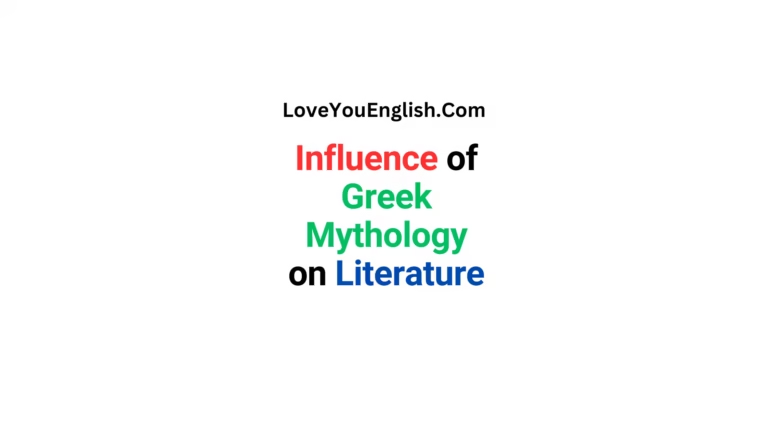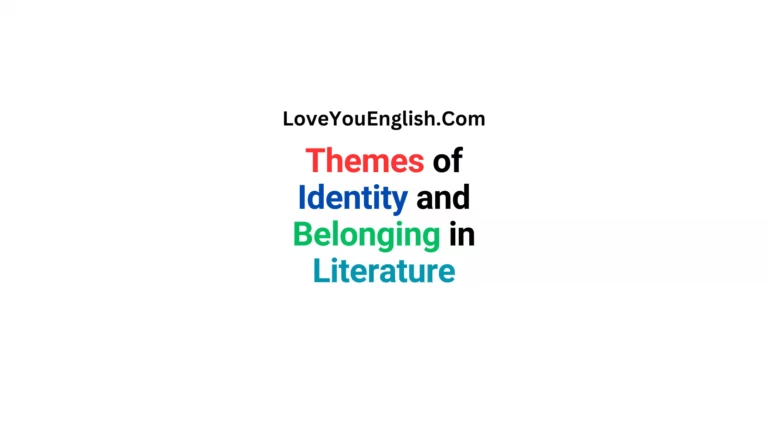The Satire of Jonathan Swift in Gulliver’s Travels
Imagine traveling to a land full of strange creatures and odd customs. At first glance, such a place might seem like a fun adventure, but what if it’s not just a story of wonder? What if it’s a clever way to criticize the world we live in? This is exactly what Jonathan Swift does in his famous work, Gulliver’s Travels. Through his satirical writing, Swift uses fantasy and humor to expose the flaws in society, politics, and human nature.
In this post, we will explore how Jonathan Swift’s satire in Gulliver’s Travels provides a sharp critique of his time, and how it continues to be relevant today.
What is Satire?
Before we dive into Gulliver’s Travels, let’s first understand what satire means. Satire is a literary technique where writers use humor, exaggeration, or ridicule to criticize or expose the flaws of society, individuals, or institutions. The goal of satire is not only to entertain but also to provoke thought and reflection. Swift’s Gulliver’s Travels is one of the best examples of satire, as it cleverly mocks various aspects of human life, such as politics, science, and social norms.
The World of Lilliput: A Reflection of Politics
In Gulliver’s Travels, the protagonist, Lemuel Gulliver, finds himself in the land of Lilliput, where the inhabitants are tiny people, no more than six inches tall. At first, Lilliput seems like a harmless, whimsical place, but Swift uses it to satirize the politics and power struggles of his own time. The Lilliputians are obsessed with trivial matters, such as the correct way to break an egg. The emperor’s court is filled with petty disputes, and the two main political parties, the Big-Endians and the Little-Endians, fight over whether to break eggs from the big end or the little end.
This absurdity highlights Swift’s criticism of political conflicts in England, where leaders often fought over trivial issues while ignoring more important concerns. The Lilliputians’ focus on the small, insignificant things in life mirrors the way politicians often focus on petty arguments rather than the real problems affecting the people. Swift’s message is clear: politics can often be full of meaningless debates that distract from the real issues.
The Conflict Between Lilliput and Blefuscu: A Critique of War
As Gulliver’s adventures continue, he finds himself in the midst of a war between Lilliput and its neighboring country, Blefuscu. The war begins over a disagreement about which end of the egg should be broken, but it escalates into a full-blown conflict. The war is senseless, as the reasons for fighting are trivial, yet it results in great loss and destruction.
Through this absurd war, Swift critiques the senseless nature of real-life wars. At the time Swift wrote Gulliver’s Travels, Europe was experiencing numerous wars, many of which were fought over small disputes or political power. Swift uses the Lilliput-Blefuscu war to show how wars are often based on foolish disagreements and how they can lead to destruction and suffering. By exaggerating this idea in a fictional world, Swift makes his point even more powerful and clear.
The Academy of Lagado: A Critique of Science and Reason
In one of the later parts of Gulliver’s Travels, Gulliver visits the Academy of Lagado, a place where scientists and intellectuals are working on strange and useless inventions. These inventions include turning excrement into food, building houses from the sky, and other absurd ideas. The scientists at the academy are so focused on their experiments that they ignore practical needs and common sense.
Here, Swift is satirizing the rise of scientific thinking and reason during the Enlightenment. While science was making great progress, Swift believed that some intellectuals had become too obsessed with abstract theories and experiments that had no real-world value. He criticizes the tendency of scientists to prioritize their own ideas over practical solutions that could benefit society. Through the exaggerated and ridiculous inventions of the Academy of Lagado, Swift shows how some scientific endeavors can be disconnected from reality and practical needs.
The Houyhnhnms and the Yahoos: A Reflection on Human Nature
One of the most important parts of Gulliver’s Travels is Gulliver’s encounter with the Houyhnhnms, a race of intelligent, rational horses, and the Yahoos, a barbaric species of human-like creatures. The Houyhnhnms live in a society based on reason, where there is no war, crime, or greed. In contrast, the Yahoos represent the worst aspects of human nature: greed, violence, and savagery.
Through the Houyhnhnms and the Yahoos, Swift explores the idea of human nature. While the Houyhnhnms represent the ideal of reason and virtue, the Yahoos show the dark side of humanity. Swift uses these contrasting groups to criticize human behavior and the flaws that exist within society. The Yahoos, who are physically and morally repulsive, serve as a reflection of human beings at their worst. Swift suggests that, despite our claims to reason and civilization, humans can often act in ways that are just as barbaric as the Yahoos.
Swift’s Personal Disillusionment with Humanity
As Gulliver spends more time with the Houyhnhnms, he begins to see them as a perfect example of what humans should strive to be. He becomes increasingly disgusted by the Yahoos, whom he now sees as a mirror of humanity. In the end, Gulliver is so disgusted by human nature that he refuses to return to England, preferring to live with the Houyhnhnms.
Swift’s portrayal of Gulliver’s disillusionment with humanity is a powerful reflection of his own views. By the time Swift wrote Gulliver’s Travels, he had become deeply disillusioned with human beings and the society they had created. Through Gulliver’s character, Swift expresses his belief that humans are flawed, selfish, and corrupt. His satirical portrayal of human nature serves as a warning to readers about the dangers of pride, greed, and ignorance.
The Enduring Relevance of Swift’s Satire
Although Gulliver’s Travels was written in the early 18th century, its themes and criticisms are still relevant today. Political corruption, senseless wars, misguided scientific pursuits, and human greed are still major issues in the modern world. Swift’s satire continues to be an important tool for critiquing society, encouraging readers to reflect on their own behavior and the world around them.
In today’s world, we can see parallels to the petty political conflicts in Lilliput, the absurdity of some modern wars, the disconnection between scientific advancements and real-world problems, and the greed and selfishness that often dominate human behavior. Swift’s message is timeless: we must be aware of our flaws and work towards creating a better, more rational world.
Conclusion
Jonathan Swift’s Gulliver’s Travels is much more than just a story of a man’s strange adventures in far-off lands. Through his use of satire, Swift provides a sharp critique of society, politics, and human nature.
By exaggerating the absurdities of the world he lived in, Swift forces readers to confront the flaws in their own world. His work remains a powerful reminder that, while we may think we have advanced as a society, we are still prone to the same mistakes and vices that Swift critiqued centuries ago.
So, the next time you find yourself laughing at the strange worlds Gulliver visits, remember that there’s more to the story than just fun and fantasy. Jonathan Swift is challenging us to think deeply about the world we live in and the choices we make.
More topics:
- The Influence of Colonialism on English Literature
- The Role of English Literature in Preserving Historical Events
- Themes of Identity and Belonging in English Literature
- Class Struggles in English Literary Works
- The Influence of Greek Mythology on English Literature
- The Rise of Dystopian Literature in the 20th Century
- How English Literature Explores the Concept of Heroism
- Satire in English Literature: From Jonathan Swift to George Orwell
- English Literature in the Digital Age







